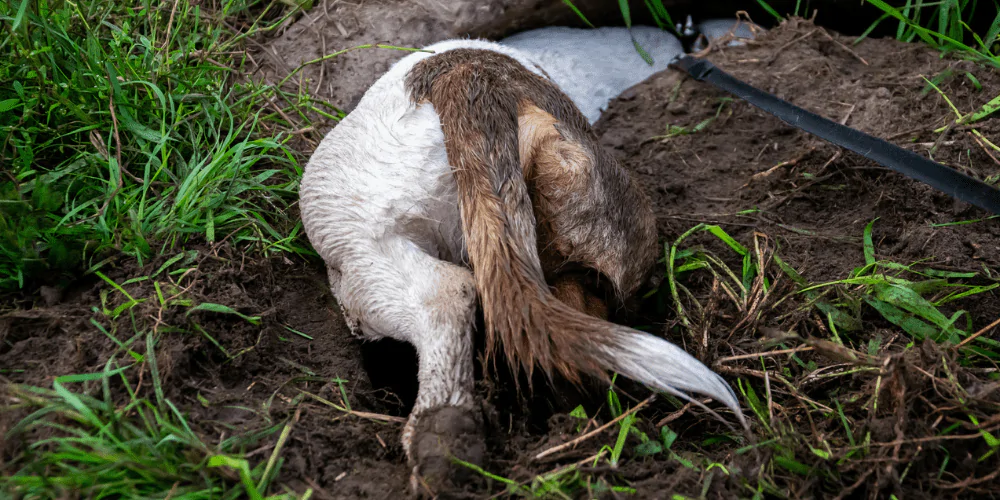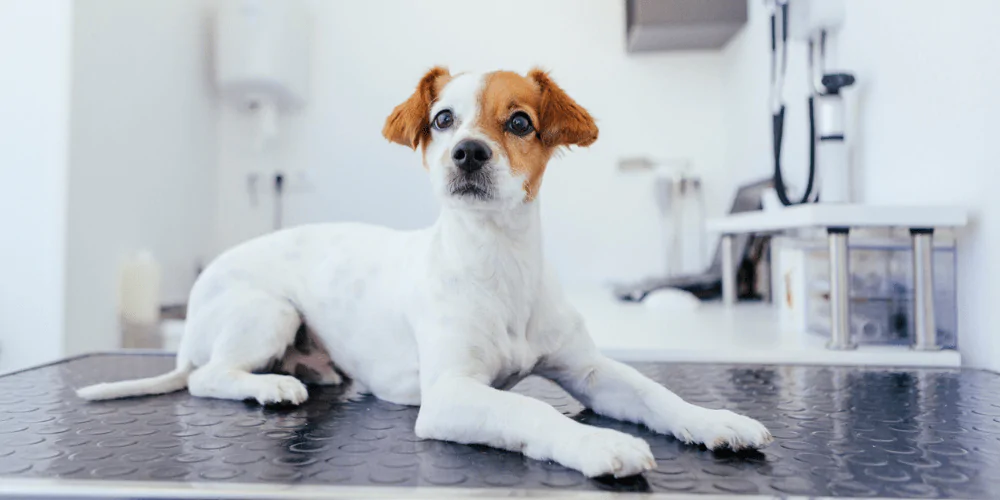
Do I need dog insurance?

Allie Simpson
24 October 2022 | 6 minutes read
Just like their humans, dogs can get into accidents or become poorly. And if something did happen, you want to make sure they get the best care possible without having to make compromises.
There’s no NHS for our four-legged family members. So let’s talk about why having dog insurance is important and could save you from making heart-breaking decisions.
- Why should I think about getting dog insurance?
> Dog insurance can cover treatment for short and long-term illnesses
> Dog insurance can cover you for accidents and the unexpected
> Self-insuring could be risky
> Dog insurance can cover more than just vet fees - When should you get dog insurance?
> How much dog insurance do I need?
> How much is dog insurance in the UK?
> Is pet insurance worth it for older dogs? - Other dog insurance questions
> Does dog insurance cover teeth cleaning?
> Does dog insurance cover spaying and neutering?
> Does dog insurance cover routine vaccines?

Why should I think about getting dog insurance?
> Dog insurance can cover treatment for short and long-term illnesses
Dogs can develop many of the same diseases and conditions as humans do. And, like us, these conditions can be inherited, come on suddenly, or develop as your pup ages.
A 2016 VetCompass research project on UK dogs found the most commonly diagnosed conditions included:
- Dental disorders
- Skin disorders
- Small intestine damage/irritation
Out of the 22,333 dogs randomly chosen for the study, nearly 66% were diagnosed with at least one disorder. This shows just how common it is for dogs to fall ill.
It can be difficult to plan for illnesses your canine may develop, especially if they become recurring conditions. The initial treatment of these conditions might be manageable at first, but these costs can really build up as time goes on.
It’s also important to keep in mind that some insurers won’t cover your dog’s pre-existing conditions. They’ll only accept new illnesses which start after the policy is in place.

> Dog insurance can cover you for accidents and the unexpected
Your pooch may be young and healthy, but accidents can happen at any time and at any age.
- A VetCompass study on 200,000 UK dogs showed that four in every 1,000 dogs are involved in Road Traffic Accidents (RTAs). The average age that RTAs happen is 2.5 years old.
- Another study from 2018 looked at 140 dogs involved in RTAs. It found that younger and larger dogs suffered more limb fractures, while smaller and older dogs often had more pelvic fractures.
Vet fees can be more expensive than you think. Fixing even simple physical fractures can start from £2,000 and increase if your dog needs more complex surgery.

> Self-insuring could be risky
Instead of having dog insurance, some dog parents choose to put money in savings to cover vet fees (known as self-insurance).
But with sophisticated new treatments being developed, plus the cost of living increasing, vet prices are on the rise.
Self-insuring comes with the risk that you might not have enough set aside for when your dog suddenly needs treatment. So it may mean having to compromise on your dog’s options or possibly ending up in debt to foot the bill.
Plus, you won’t be covered if any legal action is taken against your dog. You’d need to check if this was covered by any other insurance you have.

> Dog insurance can cover more than just vet fees
Taking out dog insurance isn’t just a way to be prepared for unexpected vet bills.
Your pooch could also be covered for other things, including:
- Travel and holiday costs
- Third party liability
- Behavioural treatment and complementary therapies
- Advertising and reward costs if your dog goes missing
These cover options may be optional add-ons and not included as standard. Always check your policy wording carefully to see your pet’s specific cover levels.

When should you get dog insurance?
You never know when your canine may fall ill or get themselves into a scrape. Many providers offer dog insurance for puppies from just four weeks old.
Some insurers won’t take new dogs over a certain age, don’t cover existing illnesses, or have strict limits on cover for those conditions.
We think it’s never too late to protect your pet – it’s why we have no upper age limits and consider all pre-existing conditions.

> How much dog insurance do I need?
How much insurance you’ll need for your pooch depends on their individual needs. And as we’ve seen, choosing the cheapest option may not cover all of your dog’s potential medical costs in a policy year.
Things to think about when choosing your cover levels include:
- How much your vet charges for different kinds of treatment, so you know what you could pay out
- Whether your dog’s breed means they’re at a greater risk of inheriting certain genetic conditions
- What’s included as standard cover and what is an optional extra

> How much is dog insurance in the UK?
The cost of dog insurance in the UK can vary based on some of the below:
- What type of pet insurance you pick
- Your chosen vet fee limit and cover options
- If you’ve chosen to add or have a compulsory excess or bill share (also known as co-payment)
- Your pooch’s age and breed
- Where you live
- If you need to cover any pre-existing illnesses
Not sure what types of pet policies are out there? Check out our handy guide on how to choose the best pet insurance.

> Is pet insurance worth it for older dogs?
As dogs age, the likelihood of them getting ill increases. So it’s always worth thinking about getting cover for your older dog if they’re not already protected.
As we mentioned earlier, some insurance providers don’t offer new policies to dogs above a certain age. If they will take on older dogs, they may include extra compulsory payments or put limits on their cover. So always check your policy wording carefully.

Other dog insurance questions
> Does dog insurance cover teeth cleaning?
Your vet may suggest professional teeth cleaning to help your canine with plaque and tartar buildup. But many insurers see this as preventative care and so won’t cover the cost of this treatment.
Having a good oral hygiene routine can help reduce the risk of your pup needing dental treatment at the vet.
> Does dog insurance cover spaying and neutering?
Spaying or neutering your dog often isn’t covered by insurance providers as it’s seen as routine treatment.
> Does dog insurance cover routine vaccines?
Like neutering, vaccines are classed by many insurers as part of your dog’s routine care. This means they won’t cover the cost of initial puppy routine vaccinations or annual boosters.


